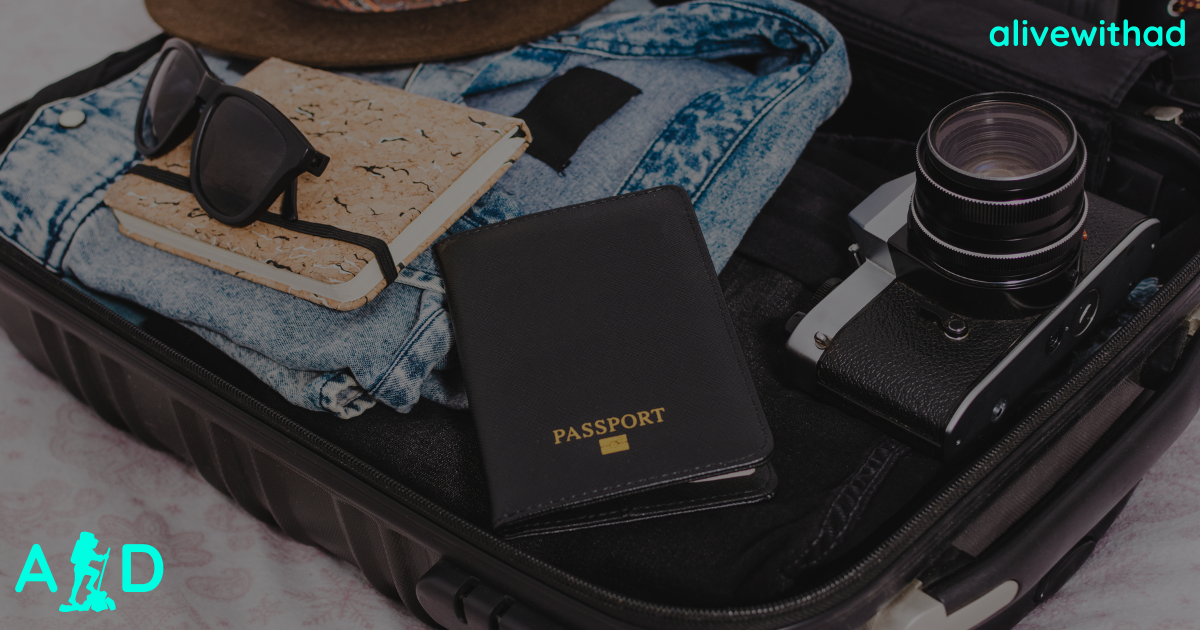What’s in the article?
Travelling solo can be an enriching experience, but it also comes with risks and challenges. That’s why it’s essential to have travel insurance to protect yourself in case of any unforeseen circumstances. This article explores the top 10 travel insurance options for solo travel, highlighting the features and benefits of each.
The article stresses the importance of travel insurance, especially for solo travellers. When travelling alone, there’s no one else to rely on in emergencies, making it crucial to have the right coverage. The article covers various factors to consider when choosing travel insurance, including medical coverage, trip cancellation, and luggage protection.

- What’s in the article?
- Why Travel Insurance is Essential for Solo Travelers
- Factors to Consider When Choosing Travel Insurance for Solo Travel
- Explore More
- Basic vs. Premium Coverage Options: Which One is Right for You?
- Luggage Protection and Coverage for Solo Travelers
- Cost Considerations When Choosing Travel Insurance for Solo Travel
- How to Find the Best Policy for Your Needs and Budget
- Tips for Navigating the Claims Process and Using Travel Insurance Effectively
- My Suggestions
- Wrapping Up,
Why Travel Insurance is Essential for Solo Travelers
As a solo traveller, it’s essential to understand the risks of solo travel and the need for travel insurance to mitigate those risks. Here are two reasons why travel insurance is crucial for solo travellers:
Risks of solo travel
Risks of solo travel: When travelling solo, you are responsible for your safety and well-being. You are more vulnerable to theft, loss of luggage, illness, and accidents. Finding help or navigating a medical emergency can be challenging in an unfamiliar destination. A travel insurance policy can cover these risks and give you peace of mind while travelling.
Peace of mind with travel insurance
With travel insurance, you can enjoy your trip without worrying about the financial impact of unforeseen circumstances. Your travel insurance policy will cover the medical expenses if you fall ill or get injured while travelling. If you lose your luggage or your trip is cancelled, your travel insurance policy will reimburse the costs. This will allow you to focus on enjoying your trip and making unforgettable memories.
In summary, travel insurance is crucial for solo travellers to protect them from the risks associated with solo travel and provide them with peace of mind while travelling.
Factors to Consider When Choosing Travel Insurance for Solo Travel
When planning a solo trip, choosing the right travel insurance is essential. Here are three factors to consider when selecting travel insurance for solo travel:
Duration and location of travel
The duration and location of your trip are essential factors to consider when choosing travel insurance. If you are travelling for an extended period, you may need a policy that offers coverage for a more extended period. If you’re travelling to a remote or exotic location, you may need a policy that covers medical evacuation or repatriation. Read the policy carefully and understand the limitations and exclusions before purchasing.
Activities and adventure sports
If you plan to participate in adventure sports or activities such as hiking, skiing, or scuba diving, consider purchasing additional coverage. Some travel insurance policies have exclusions for adventure sports, while others offer optional coverage. Check the policy’s fine print to ensure you have the coverage you need.
Age and health
Your age and health are essential factors to consider when choosing travel insurance. If you have pre-existing medical conditions, you may need to purchase additional coverage or a policy explicitly covering them. Some policies have age restrictions or may charge higher premiums based on age. Read the policy’s terms and conditions and consult with a healthcare provider if necessary.
Selecting the right travel insurance is critical for solo travellers. Consider the duration and location of your trip, the activities you plan to participate in, and your age and health when choosing a policy. With the right coverage, you can travel with peace of mind knowing you are protected from unforeseen circumstances. Check More
Basic vs. Premium Coverage Options: Which One is Right for You?
When choosing travel insurance for your solo trip, you will likely have the option to select either basic or premium coverage. Here are three things to consider when deciding which coverage level is right for you:
What is covered under basic coverage
Basic coverage typically includes medical emergencies, trip cancellations, and interruptions. This coverage level may be sufficient for solo travellers on a tight budget or those travelling to low-risk destinations.
Additional benefits of premium coverage
Premium coverage may offer additional benefits, such as baggage loss or delay coverage, travel delay coverage, and emergency medical evacuation coverage. If you plan to participate in adventure activities or travel to a remote or high-risk destination, consider purchasing premium coverage for additional protection.
Which coverage level is best for solo travellers?
The coverage level best for you as a solo traveller will depend on your individual needs and circumstances. Consider your travel itinerary, budget, and the activities you plan to participate in when deciding which coverage level to purchase.
It’s essential to read the policy’s fine print and understand the coverage limitations and exclusions before purchasing travel insurance. By selecting the right coverage level for your needs, you can confidently travel knowing that you are protected in the event of unforeseen circumstances.

Luggage Protection and Coverage for Solo Travelers
When travelling solo, luggage protection and coverage are crucial aspects to consider. It’s common for solo travellers to encounter luggage problems such as lost or delayed bags, damaged or stolen luggage, and personal items being lost or stolen. This is why it’s essential to have adequate coverage to protect your belongings.
Misplaced luggage
Misplaced luggage One of the most common issues solo travellers face is their luggage being misplaced by airlines or transport companies.
Theft: Luggage theft is also a common problem when travelling solo, especially in crowded places like airports and train stations.
Damaged luggage: Luggage can also be damaged during transit, which can be a major inconvenience.
Types of coverage for luggage
Baggage delay coverage: This type of coverage provides reimbursement for essential items needed while waiting for delayed luggage to arrive.
Baggage loss coverage: This type of coverage provides reimbursement for lost luggage or its contents.
Baggage damage coverage: This type of coverage provides reimbursement for repairing or replacing damaged luggage.
When choosing a travel insurance policy, it’s important to consider the types of coverage offered for luggage and which ones are most important for your trip.
How to file a claim for lost or stolen luggage
If you do experience a problem with your luggage, it’s important to know how to file a claim with your travel insurance provider. This typically involves-
Notify the authorities: Report any lost or stolen luggage to the airline or transport company immediately.
File a claim: Contact your travel insurance provider to file a claim as soon as possible.
Provide evidence: Provide any necessary documentation or evidence to support your claims, such as receipts or police reports.
Cost Considerations When Choosing Travel Insurance for Solo Travel
For solo travellers, the idea of exploring new destinations and experiencing different cultures is often exhilarating. However, the cost of unexpected incidents such as medical emergencies, trip cancellations, or lost luggage can quickly add up and ruin the entire trip. This is where travel insurance comes in, providing a safety net for solo travellers. But how much does it cost, and what factors should one consider when choosing an affordable yet comprehensive policy? Let’s explore some cost considerations when choosing travel insurance for solo travel in India.
How much does travel insurance cost for solo travellers?
The cost of travel insurance for solo travellers in India can vary depending on several factors, such as the duration of the trip, the level of coverage required, and the traveller’s age and health. On average, a basic travel insurance policy for a week-long trip in India can cost anywhere from Rs. 500 to Rs. 2,000.
What affects the cost of travel insurance?
There are several factors that can impact the cost of travel insurance in India. These include:
Age: Older travellers may have to pay a higher premium as they are considered to be at a higher risk of health issues.
Destination: The cost of travel insurance can also vary based on the destination. For example, travelling to countries with high medical costs or high crime rates may result in a higher premium.
Duration of the trip: Longer trips generally cost more as there is a higher risk of unforeseen events.
Type of Coverage: The level of coverage required can also affect the cost of travel insurance. Basic coverage may be cheaper, but it may not provide comprehensive protection.
How to find affordable travel insurance
Here are a few tips to help you find affordable travel insurance in India:
Compare policies: Research and compare policies from different insurance providers to find one that offers the best value for money.
Opt for basic coverage: If you’re on a tight budget, opt for a basic travel insurance policy that covers the essentials such as medical emergencies and trip cancellations.
Consider a higher deductible: A higher deductible can help lower the premium, but be sure you can afford the deductible in case of an emergency.
Look for discounts: Some insurance providers may offer discounts based on factors such as age, membership in certain organizations, or past travel history.
By considering these factors and tips, you can find affordable travel insurance that provides peace of mind during your solo travels in India.
How to Find the Best Policy for Your Needs and Budget
When it comes to purchasing travel insurance for solo travel, finding the best policy that fits both your needs and budget can be a challenging task. With so many options available in the market, it’s important to do your research before making a decision.
Comparison shopping for travel insurance
Take the time to compare policies from different insurance providers. Look for policies that offer coverage for your specific travel needs, such as medical emergencies, trip cancellations, or lost baggage. Don’t just settle for the first policy you come across, as there may be better deals out there.
Understanding the fine print of policies
It’s important to read and understand the fine print of the policies you are considering. Pay attention to the terms and conditions, including any exclusions or limitations. This will help you to determine if the policy meets your needs and whether there are any hidden costs.
Choosing the right policy for your unique needs
Consider your travel plans and your individual needs when selecting a policy. For example, if you are participating in adventure sports, make sure the policy includes coverage for these activities. If you have pre-existing medical conditions, make sure the policy covers them.
By following these steps, you can ensure that you find the best travel insurance policy for your needs and budget, providing you with peace of mind and protection while you travel solo.
Tips for Navigating the Claims Process and Using Travel Insurance Effectively
Travel insurance can provide peace of mind during your solo travels, but it’s important to understand how to use it effectively. Here are some tips to keep in mind:
What to do in case of an emergency
Before you leave for your trip, make sure you know how to contact your travel insurance provider in case of an emergency. Keep a copy of your policy and emergency contact information with you at all times.
How to file a claim with your travel insurance provider
If you do need to file a claim, make sure you understand the process and requirements. Some insurance providers require documentation such as police reports, medical records, or receipts. Keep all relevant documentation in a safe place while travelling.
Maximizing your travel insurance coverage
Ensure that you understand what your policy covers and take advantage of any additional benefits, such as coverage for lost luggage, trip cancellation, or medical expenses. Keep in mind that some activities, such as adventure sports, may not be covered under a standard policy and require additional coverage.
By following these tips, you can navigate the claims process and use your travel insurance effectively to protect yourself and your investment. Remember, the goal is to have a worry-free trip, so take the time to choose the right policy for your needs and budget before you leave.

My Suggestions
- You can check the list once:
- HDFC Ergo: offers a wide range of travel insurance policies for individual travellers with coverage for medical emergencies, personal accidents, loss of passport, and trip cancellation.
- ICICI Lombard: provides travel insurance coverage for individuals, families, and senior citizens with options for coverage for trip cancellations, medical emergencies, and personal accidents.
- Bajaj Allianz: offers travel insurance policies for individuals and families with coverage for medical expenses, personal accidents, and trip cancellation or curtailment.
- Reliance General Insurance: provides travel insurance policies for individual travellers with coverage for medical emergencies, personal accidents, loss of passport, and baggage loss or delay.
- Tata AIG: offers travel insurance policies for individual travellers with options for coverage for medical emergencies, personal accidents, loss of passport, and trip cancellations or curtailments.
Wrapping Up,
In conclusion, choosing the right travel insurance policy for your solo trip can help provide peace of mind and protect against unforeseen events. It’s important to carefully consider your individual needs and budget, and research different providers and coverage options before making a decision. By doing so, you can enjoy your solo adventure with confidence, knowing that you have the appropriate insurance protection in place.

民意調查
民意調查是什麼?民調什麼意思?
民意調查又稱為輿論調查或民意測驗,簡稱民調。一般而言,民調是一種為了解公眾對某些政治、社會問題與政策的意見和態度,由專業民調公司或媒體進行的調查方法。
目的在於通過網路、電話、或書面等媒介,對大量樣本的問卷調查抽樣,利用統計學的抽樣理論來推斷較為客觀,且能較為精確地推論社會輿論或民意動向的一種方法。
以下是民意調查的一些基本特點和重要性:
抽樣:由於不可能向每一個人詢問意見,所以調查者會選擇一個代表性的樣本進行調查。這樣本的大小和抽樣方法都會影響調查的準確性和可靠性。
問卷設計:為了確保獲得可靠的結果,問卷必須經過精心設計,問題要清晰、不帶偏見,且易於理解。
數據分析:收集到的數據將被分析以得出結論。這可能包括計算百分比、平均值、標準差等,以及更複雜的統計分析。
多種用途:民意調查可以用於各種目的,包括政策制定、選舉預測、市場研究、社會科學研究等。
限制:雖然民意調查是一個有價值的工具,但它也有其限制。例如,樣本可能不完全代表目標人群,或者問卷的設計可能導致偏見。
影響決策:民意調查的結果常常被政府、企業和其他組織用來影響其決策。
透明度和誠實:為了維護調查的可信度,調查組織應該提供其調查方法、樣本大小、抽樣方法和可能的誤差範圍等詳細資訊。
民調是怎麼調查的?
民意調查(輿論調查)的意義是指為瞭解大多數民眾的看法、意見、利益與需求,以科學、系統與公正的資料,蒐集可以代表全部群眾(母體)的部分群眾(抽樣),設計問卷題目後,以人工或電腦詢問部分民眾對特定議題的看法與評價,利用抽樣出來部分民眾的意見與看法,來推論目前全部民眾的意見與看法,藉以衡量社會與政治的狀態。
以下是進行民調調查的基本步驟:
定義目標和目的:首先,調查者需要明確調查的目的。是要了解公眾對某個政策的看法?還是要評估某個政治候選人的支持率?
設計問卷:根據調查目的,研究者會設計一份問卷。問卷應該包含清晰、不帶偏見的問題,並避免導向性的語言。
選擇樣本:因為通常不可能調查所有人,所以會選擇一部分人作為代表。這部分人被稱為“樣本”。最理想的情況是使用隨機抽樣,以確保每個人都有被選中的機會。
收集數據:有多種方法可以收集數據,如面對面訪問、電話訪問、郵件調查或在線調查。
數據分析:一旦數據被收集,研究者會使用統計工具和技術進行分析,得出結論或洞見。
報告結果:分析完數據後,研究者會編寫報告或發布結果。報告通常會提供調查方法、樣本大小、誤差範圍和主要發現。
解釋誤差範圍:多數民調報告都會提供誤差範圍,例如“±3%”。這表示實際的結果有可能在報告結果的3%範圍內上下浮動。
民調調查的質量和可信度很大程度上取決於其設計和實施的方法。若是由專業和無偏見的組織進行,且使用科學的方法,那麼民調結果往往較為可靠。但即使是最高質量的民調也會有一定的誤差,因此解讀時應保持批判性思考。
為什麼要做民調?
民調提供了一種系統性的方式來了解大眾的意見、態度和信念。進行民調的原因多種多樣,以下是一些主要的動機:
政策制定和評估:政府和政策制定者進行民調,以了解公眾對某一議題或政策的看法。這有助於制定或調整政策,以反映大眾的需求和意見。
選舉和政治活動:政黨和候選人通常使用民調來評估自己在選舉中的地位,了解哪些議題對選民最重要,以及如何調整策略以吸引更多支持。
市場研究:企業和組織進行民調以了解消費者對產品、服務或品牌的態度,從而制定或調整市場策略。
社會科學研究:學者和研究者使用民調來了解人們的社會、文化和心理特征,以及其與行為的關係。
公眾與媒體的期望:民調提供了一種方式,使公眾、政府和企業得以了解社會的整體趨勢和態度。媒體也經常報導民調結果,提供公眾對當前議題的見解。
提供反饋和評估:無論是企業還是政府,都可以透過民調了解其表現、服務或政策的效果,並根據反饋進行改進。
預測和趨勢分析:民調可以幫助預測某些趨勢或行為的未來發展,如選舉結果、市場需求等。
教育和提高公眾意識:通過進行和公布民調,可以促使公眾對某一議題或問題有更深入的了解和討論。
民調可信嗎?
民意調查的結果數據隨處可見,尤其是政治性民調結果幾乎可說是天天在新聞上放送,對總統的滿意度下降了多少百分比,然而大家又信多少?
在景美市場的訪問中,我們了解到民眾對民調有一些普遍的觀點。大多數受訪者表示,他們對民調的可信度存有疑慮,主要原因是他們擔心政府可能會在調查中進行操控,以符合特定政治目標。
受訪者還提到,民意調查的結果通常不會對他們的投票意願產生影響。換句話說,他們的選擇通常受到更多因素的影響,例如候選人的政策立場和政府做事的認真與否,而不是單純依賴民調結果。
從訪問中我們可以得出的結論是,大多數民眾對民調持謹慎態度,並認為它們對他們的投票決策影響有限。
nhà cái uy tín